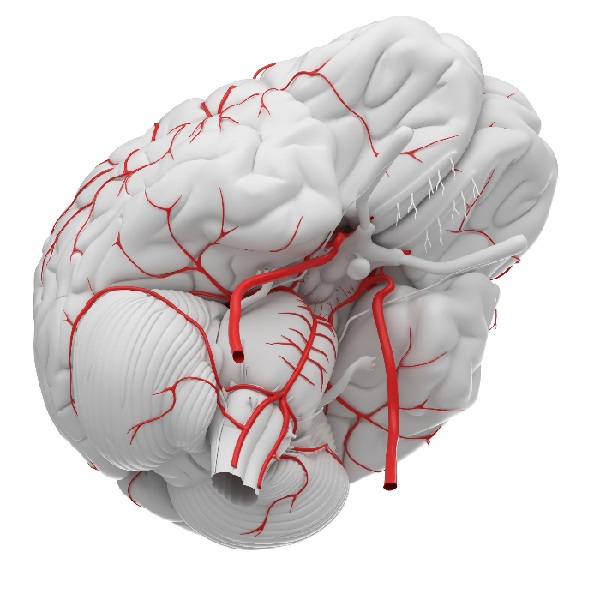Mobile Health Applications Jeopardize User Privacy
|
By HospiMedica International staff writers Posted on 12 Feb 2018 |
A majority of health applications do not meet the legal requirements meant to prevent inappropriate and uncontrolled data disclosure to third-party companies.
Researchers at the University of Piraeus (Greece) and Rovira i Virgili University (URV; Tarragona, Spain) conducted a study that evaluated 20 popular mobile health apps available for free on Google Play. App criteria included 100,000 to 10 million downloads and a minimum rating of 3.5 out of 5 points. All chosen apps managed, stored, and monitored users’ biomedical data, including health conditions, diseases, or medical agendas. The researchers then conducted static and dynamic analysis of the apps, along with tailored testing of each application’s functionalities.
The results revealed that only 20% of the analyzed applications stored data on users’ smartphones, with half of the apps also sharing personal data--both text data and multimedia such as X-ray images--with third parties. One in two apps requested and then.. managed users’ login passwords without a secure hypertext transfer protocol (HTTPs) connection, transmitting users’ health data through standard URL links, thus making the data accessible to anyone with access to those links.
Some apps required access to geolocation data, microphones, camera, contacts list, an external storage card or Bluetooth communication, although the apps’ functionality did not depend on it. In 20% of the cases, the apps either did not refer users to a privacy policy, or the policy content was not available in English. After informing app developers about their findings, researchers noticed some issues had been corrected, such as unsafe health data transfers; but other issues, such as app usage data leaks, had not been addressed at all. The study was published on January 29, 2018, in IEEE Access.
“Recent advances in hardware and telecommunications have enabled the development of low cost mobile devices equipped with a variety of sensors. As a result, new functionalities, empowered by emerging mobile platforms, allow millions of applications to take advantage of vast amounts of data,” concluded senior author Agusti Solanas, PhD, of the URV department of computer engineering and mathematics, and colleagues. “We strongly support the use of mobile health apps, but users must know that apps’ popularity does not ensure privacy and security. People need to become more aware of the risks they are facing.”
Related Links:
University of Piraeus
Rovira i Virgili University
Researchers at the University of Piraeus (Greece) and Rovira i Virgili University (URV; Tarragona, Spain) conducted a study that evaluated 20 popular mobile health apps available for free on Google Play. App criteria included 100,000 to 10 million downloads and a minimum rating of 3.5 out of 5 points. All chosen apps managed, stored, and monitored users’ biomedical data, including health conditions, diseases, or medical agendas. The researchers then conducted static and dynamic analysis of the apps, along with tailored testing of each application’s functionalities.
The results revealed that only 20% of the analyzed applications stored data on users’ smartphones, with half of the apps also sharing personal data--both text data and multimedia such as X-ray images--with third parties. One in two apps requested and then.. managed users’ login passwords without a secure hypertext transfer protocol (HTTPs) connection, transmitting users’ health data through standard URL links, thus making the data accessible to anyone with access to those links.
Some apps required access to geolocation data, microphones, camera, contacts list, an external storage card or Bluetooth communication, although the apps’ functionality did not depend on it. In 20% of the cases, the apps either did not refer users to a privacy policy, or the policy content was not available in English. After informing app developers about their findings, researchers noticed some issues had been corrected, such as unsafe health data transfers; but other issues, such as app usage data leaks, had not been addressed at all. The study was published on January 29, 2018, in IEEE Access.
“Recent advances in hardware and telecommunications have enabled the development of low cost mobile devices equipped with a variety of sensors. As a result, new functionalities, empowered by emerging mobile platforms, allow millions of applications to take advantage of vast amounts of data,” concluded senior author Agusti Solanas, PhD, of the URV department of computer engineering and mathematics, and colleagues. “We strongly support the use of mobile health apps, but users must know that apps’ popularity does not ensure privacy and security. People need to become more aware of the risks they are facing.”
Related Links:
University of Piraeus
Rovira i Virgili University
Latest Health IT News
- Machine Learning Model Improves Mortality Risk Prediction for Cardiac Surgery Patients
- Strategic Collaboration to Develop and Integrate Generative AI into Healthcare
- AI-Enabled Operating Rooms Solution Helps Hospitals Maximize Utilization and Unlock Capacity
- AI Predicts Pancreatic Cancer Three Years before Diagnosis from Patients’ Medical Records
- First Fully Autonomous Generative AI Personalized Medical Authorizations System Reduces Care Delay
- Electronic Health Records May Be Key to Improving Patient Care, Study Finds
- AI Trained for Specific Vocal Biomarkers Could Accurately Predict Coronary Artery Disease
- First-Ever AI Test for Early Diagnosis of Alzheimer’s to Be Expanded to Diagnosis of Parkinson’s Disease
- New Self-Learning AI-Based Algorithm Reads Electrocardiograms to Spot Unseen Signs of Heart Failure
- Autonomous Robot Performs COVID-19 Nasal Swab Tests

- Statistical Tool Predicts COVID-19 Peaks Worldwide
- Wireless-Controlled Soft Neural Implant Stimulates Brain Cells
- Tiny Polymer Stent Could Treat Pediatric Urethral Strictures
- Human Torso Simulator Helps Design Brace Innovations
- 3D Bioprinting Rebuilds the Human Heart
Channels
Artificial Intelligence
view channel
AI-Powered Algorithm to Revolutionize Detection of Atrial Fibrillation
Atrial fibrillation (AFib), a condition characterized by an irregular and often rapid heart rate, is linked to increased risks of stroke and heart failure. This is because the irregular heartbeat in AFib... Read more
AI Diagnostic Tool Accurately Detects Valvular Disorders Often Missed by Doctors
Doctors generally use stethoscopes to listen for the characteristic lub-dub sounds made by heart valves opening and closing. They also listen for less prominent sounds that indicate problems with these valves.... Read moreCritical Care
view channel
Revascularization Improves Life Quality in Chronic Limb-Threatening Ischemia, Finds Study
Researchers have undertaken a detailed study to evaluate the effects of revascularization strategies on the health-related quality of life (HRQoL) of patients with chronic limb-threatening ischemia.... Read more
Powerful AI Risk Assessment Tool Predicts Outcomes in Heart Failure Patients
Heart failure is a serious condition where the heart cannot pump sufficient blood to meet the body's needs, leading to symptoms like fatigue, weakness, and swelling in the legs and feet, and it can ultimately... Read more
Peptide-Based Hydrogels Repair Damaged Organs and Tissues On-The-Spot
Scientists have ingeniously combined biomedical expertise with nature-inspired engineering to develop a jelly-like material that holds significant promise for immediate repairs to a wide variety of damaged... Read more
One-Hour Endoscopic Procedure Could Eliminate Need for Insulin for Type 2 Diabetes
Over 37 million Americans are diagnosed with diabetes, and more than 90% of these cases are Type 2 diabetes. This form of diabetes is most commonly seen in individuals over 45, though an increasing number... Read moreSurgical Techniques
view channel
Miniaturized Snake-Like Probe Images Cerebral Arteries From Within
Endovascular interventions are being increasingly favored for treating strokes and cerebral artery diseases, but rely heavily on angiographical imaging that often struggles with limited contrast and spatial... Read more
Miniaturized Implantable Multi-Sensors Device to Monitor Vessels Health
Researchers have embarked on a project to develop a multi-sensing device that can be implanted into blood vessels like peripheral veins or arteries to monitor a range of bodily parameters and overall health status.... Read more
Tiny Robots Made Out Of Carbon Could Conduct Colonoscopy, Pelvic Exam or Blood Test
Researchers at the University of Alberta (Edmonton, AB, Canada) are developing cutting-edge robots so tiny that they are invisible to the naked eye but are capable of traveling through the human body to... Read more
Miniaturized Ultrasonic Scalpel Enables Faster and Safer Robotic-Assisted Surgery
Robot-assisted surgery (RAS) has gained significant popularity in recent years and is now extensively used across various surgical fields such as urology, gynecology, and cardiology. These surgeries, performed... Read morePatient Care
view channelFirst-Of-Its-Kind Portable Germicidal Light Technology Disinfects High-Touch Clinical Surfaces in Seconds
Reducing healthcare-acquired infections (HAIs) remains a pressing issue within global healthcare systems. In the United States alone, 1.7 million patients contract HAIs annually, leading to approximately... Read more
Surgical Capacity Optimization Solution Helps Hospitals Boost OR Utilization
An innovative solution has the capability to transform surgical capacity utilization by targeting the root cause of surgical block time inefficiencies. Fujitsu Limited’s (Tokyo, Japan) Surgical Capacity... Read more
Game-Changing Innovation in Surgical Instrument Sterilization Significantly Improves OR Throughput
A groundbreaking innovation enables hospitals to significantly improve instrument processing time and throughput in operating rooms (ORs) and sterile processing departments. Turbett Surgical, Inc.... Read morePoint of Care
view channel
Critical Bleeding Management System to Help Hospitals Further Standardize Viscoelastic Testing
Surgical procedures are often accompanied by significant blood loss and the subsequent high likelihood of the need for allogeneic blood transfusions. These transfusions, while critical, are linked to various... Read more
Point of Care HIV Test Enables Early Infection Diagnosis for Infants
Early diagnosis and initiation of treatment are crucial for the survival of infants infected with HIV (human immunodeficiency virus). Without treatment, approximately 50% of infants who acquire HIV during... Read more
Whole Blood Rapid Test Aids Assessment of Concussion at Patient's Bedside
In the United States annually, approximately five million individuals seek emergency department care for traumatic brain injuries (TBIs), yet over half of those suspecting a concussion may never get it checked.... Read more
New Generation Glucose Hospital Meter System Ensures Accurate, Interference-Free and Safe Use
A new generation glucose hospital meter system now comes with several features that make hospital glucose testing easier and more secure while continuing to offer accuracy, freedom from interference, and... Read moreBusiness
view channel
Johnson & Johnson Acquires Cardiovascular Medical Device Company Shockwave Medical
Johnson & Johnson (New Brunswick, N.J., USA) and Shockwave Medical (Santa Clara, CA, USA) have entered into a definitive agreement under which Johnson & Johnson will acquire all of Shockwave’s... Read more














